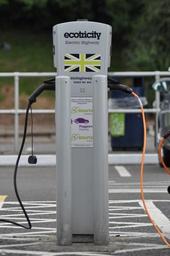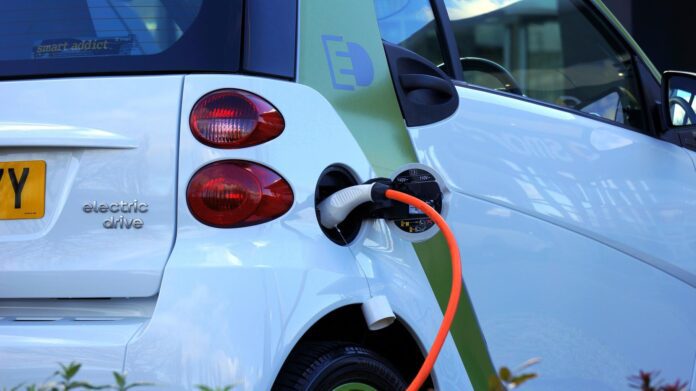Electric cars have been touted as the future of sustainable transportation, but beneath the surface of their shiny exteriors and zero-emission promises lie a myriad of challenges and unresolved issues. While the push for electric vehicles (EVs) is strong, particularly from governments, there are significant hurdles that question their practicality, affordability, reliability, and overall sustainability. This article delves into the hidden costs and problems of electric cars, exploring the realities of their environmental impact, economic feasibility, and the technological limitations that currently plague their adoption.
The High Cost of Electric Cars
One of the most significant barriers to widespread EV adoption is their high purchase price. Despite advances in technology and production, electric cars remain substantially more expensive than their internal combustion engine (ICE) counterparts. This price gap is largely due to the costly materials required for batteries, such as lithium, cobalt, and nickel. Additionally, the manufacturing process for EVs is more complex and expensive.
The high cost isn’t just limited to the initial purchase. Insurance premiums for electric vehicles are often higher due to the higher repair costs associated with their advanced technology and expensive components. This financial burden makes EVs less accessible to the average consumer, limiting their adoption to more affluent demographics.
Reliability and Safety Concerns
Electric vehicles have been criticised for their reliability issues. The advanced technology that powers EVs, while innovative, is still in a relatively nascent stage. Battery degradation over time, software malfunctions, and the scarcity of qualified technicians for repairs are common concerns among EV owners.
Moreover, there is a growing fear of battery fires. Lithium-ion batteries, the most common type used in electric cars, are highly flammable and can cause severe fires if damaged or improperly handled. These incidents, although rare, raise serious safety concerns and can lead to catastrophic consequences.
Inadequate Charging Infrastructure

A major hurdle in the widespread adoption of electric cars is the lack of sufficient charging infrastructure. Governments worldwide are pushing for more electric vehicles, but the number of charging stations is not keeping pace with the growing number of EVs on the road. This discrepancy leads to range anxiety among potential buyers, who fear being stranded with no available charging points.
The limited availability of fast-charging stations exacerbates this issue. Many existing charging points offer slow charging speeds, making long-distance travel impractical and inconvenient. This infrastructure gap needs urgent attention if electric cars are to become a viable option for everyday use.
Environmental Impact: A Paradox
While electric cars are marketed as a green alternative, their environmental benefits are not as clear-cut as they seem. The production of EV batteries involves significant carbon emissions due to the extraction and processing of raw materials. Additionally, the electricity used to charge these vehicles often comes from fossil fuel sources, meaning that the overall carbon footprint may not be as low as advertised.
This scenario leads to a paradox where, despite the absence of tailpipe emissions, the lifecycle emissions of electric cars may still be substantial. In essence, we are potentially shifting the pollution from the tailpipe to the power plant.
Limited Range and Practicality
The limited range of electric vehicles remains a significant drawback. Despite advancements in battery technology, most affordable EVs still offer ranges that are significantly lower than those of petrol or diesel cars. This limitation makes them less practical for long-distance travel and poses a challenge for users who do not have easy access to charging facilities at home or work.
A Path Forward: Practical Solutions for Sustainable Electric Cars
Addressing the issues surrounding electric cars requires a multi-faceted approach:
- Investment in Research and Development: Continued investment in battery technology is crucial. Developing batteries that are cheaper, more efficient, and have a longer lifespan can help reduce the cost and improve the reliability of electric cars.
- Expanding Charging Infrastructure: Governments and private companies must collaborate to rapidly expand the network of charging stations. This includes investing in fast-charging technology and ensuring charging points are as ubiquitous as petrol stations.
- Green Energy Integration: To truly reduce the carbon footprint, the electricity used to charge EVs should come from renewable sources. Investment in solar, wind, and other renewable energy projects is essential to ensure the sustainability of electric vehicles.
- Public Awareness and Incentives: Educating the public about the benefits and limitations of EVs, along with providing financial incentives such as tax breaks and rebates, can help accelerate adoption.
- Policy and Regulation: Governments should enforce strict regulations on the production and disposal of EV batteries to minimise environmental impact. Encouraging recycling and the use of sustainable materials can also make a significant difference.
Further Reading & Resources
- Challenges Facing the Electric Vehicle Industry
- Battery Safety and Fire Risks in Electric Vehicles
- Expanding the EV Charging Infrastructure
By addressing these challenges and implementing sustainable practices, we can pave the way for a future where electric cars are not just a symbol of progress, but a practical, reliable, and truly sustainable mode of transportation.




